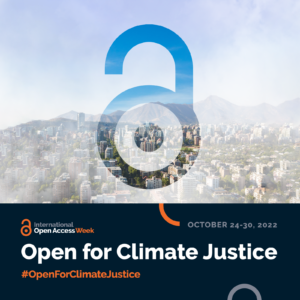 October 24-30 International Open Access Week, a week that promotes open and equitable access to research.
October 24-30 International Open Access Week, a week that promotes open and equitable access to research.
So what is open access? It’s the “free, immediate, online availability of research articles coupled with the rights to use these articles fully in the digital environment. Open Access ensures that anyone can access and use these results—to turn ideas into industries and breakthroughs into better lives” (SPARC, The Scholarly Publishing and Academic Resources Coalition).
And why do we need open access? SPARC outlines the major issues: “Our current system for communicating research uses a print-based model in the digital age. Even though research is largely produced with public dollars by researchers who share it freely, the results are hidden behind technical, legal, and financial barriers. These artificial barriers are maintained by legacy publishers and restrict access to a small fraction of users, locking out most of the world’s population and preventing the use of new research techniques.”
This year’s Open Access Week theme is Open for Climate Justice. This theme “seeks to encourage connection and collaboration among the climate movement and the international open community. Sharing knowledge is a human right, and tackling the climate crisis requires the rapid exchange of knowledge across geographic, economic, and disciplinary boundaries” (International Open Access Week).
The Gustavus Library promotes open access in several key ways:
- We promote open access resources such as the Directory of Open Access Journals and Open Educational Resources.
- We’ve established and continue to expand GustieScholar, our institutional repository, which provides open access to research produced by our community. Read more about GustieScholar.
- We co-sponsor the Open Access Publishing Support Grant for Gustavus faculty in partnership with the John S. Kendall Center for Engaged Learning.
- And in the Library, we hold ourselves to the same standards we promote with our Open Access Pledge.
During this week – and beyond – please explore open access. Consider how you can make your own work freely accessible and advocate for information to be openly available.
Looking for more information on Open Access? Contact a librarian!